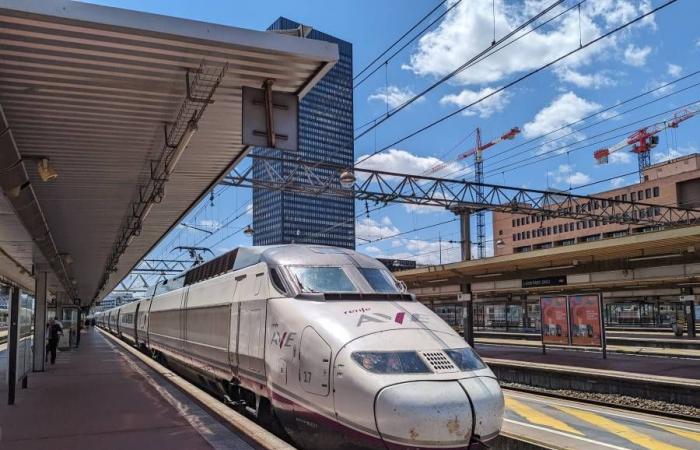
Renfe will launch a new international AVE train between Toulouse and Barcelona in the second quarter of 2025
Renfe will be the first cross-border operator, with six daily trains connecting the main cities of southern France and Spain.
The Spanish company has already officially requested the safety certificate for this operation from the EUAR one-stop shop.
Madrid, October 11, 2024, (Renfe) – Renfe will begin operating in Toulouse in the second quarter of 2025. The Spanish operator continues its expansion on the High Speed map in France and plans to open its third line in the second quarter of 2025, connecting Toulouse to Barcelona, with stops in Carcassonne, Perpignan, Figueres and Girona. If the requested timetables are confirmed, the new line will also allow connections to Madrid, Zaragoza, Tarragona, Valencia, Lleida and Castellón.
Renfe’s map of French destinations is expanding. With the incorporation of Toulouse and Carcassonne, eleven French cities will now have AVE services with direct connections to Spain. Thus, the creation of a network of destinations directly connected by Renfe trains is progressing, which increases travel possibilities, combining them with other trains on both sides of the border.
As with the arrival of the AVE in Lyon and Marseille, the new Renfe trains will re-establish a direct rail link between Toulouse, Carcassonne and Spain.
Toulouse is the fourth most populous city in France, an industrial center, a tourist destination of international interest and a gateway to the Atlantic. The new AVE line will also stop in Carcassonne, a popular tourist destination in the Languedoc region.
Next steps
Renfe has already submitted a request to the EUAR (European Union Rail Agency) to extend the safety certificate for the operation of the line to and from Toulouse. In the submitted business plan, a daily return frequency with AVE S-100 trains is envisaged, as well as a request for timetables aimed at optimizing connections with the rest of the AVE offer in France and Spain .
Initially, this train will run on a seasonal basis, from the second quarter until mid-September. There is a possibility of expanding its operation on an annual basis at a later date, in order to also meet the demand of business travelers. The estimated journey time will be approximately 3 hours and 30 minutes between Toulouse and Barcelona.
Leader in cross-border connections
With the entry into service of this new international line, Renfe consolidates its position as the main operator of cross-border connections between Spain and France with its AVE trains. From spring, Renfe will offer six daily frequencies (three in each direction) connecting 17 cities in both countries with direct trains.
Before the arrival of Renfe in France, in July 2023, most of the journeys today served by AVE international trains could only be made by road and, in some cases, by plane. Renfe thus contributes to ensuring connected and sustainable mobility, in accordance with the requirements of the Single European Railway Area project.
Lyon, Marseille, Toulouse
Toulouse will become a new hub for Renfe’s AVE lines, joining Marseille and Lyon, the three most important cities in France in terms of population, after Paris. Renfe hopes to be able to operate in the French capital as soon as possible with its high-capacity AVE s-106 trains, once Talgo completes its approval process.
In the meantime, Renfe continues to work to become a reference operator for French travelers, with an operational deployment which, from the second quarter, with the opening of the Toulouse line, will offer service to eleven destinations in France via three different routes, with six daily frequencies of AVE trains.
A brand that has convinced the French market. During its first year of competition in France, Renfe benefited from significant demand support, with an occupancy rate of 80% on its trains and a positive assessment of its proposition: attractive prices without sacrificing quality and service.





